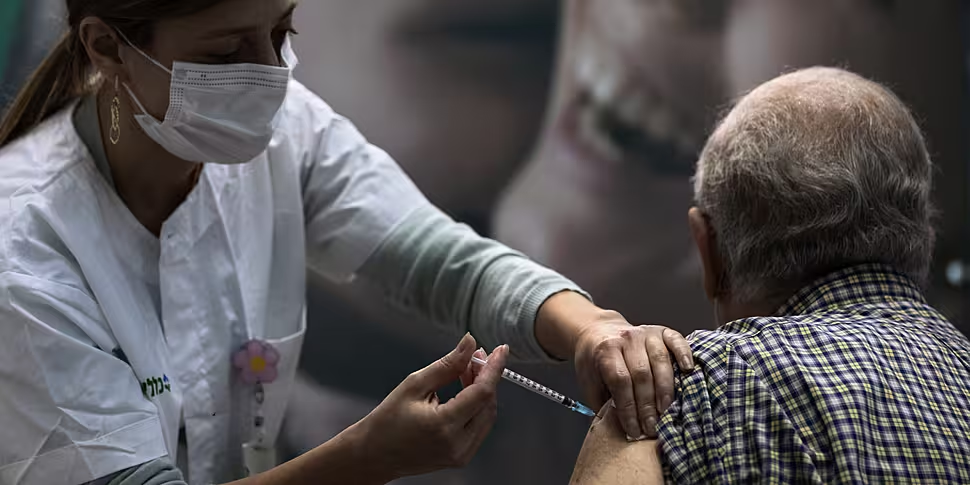As Israel moves ahead with one of the fastest vaccination programmes against the coronavirus, questions remain over exactly how - and when - Palestinians will be inoculated.
Israel has already vaccinated some 25% of its population with the Pfizer-BioNtech drug.
This comes amid reports that hundreds of doses on the cusp of expiration were thrown away in Israeli clinics at the end of December.
James Rothwell, Middle East correspondent for Britain's Telegraph newspaper, told The Hard Shoulder the solution for the Occupied Territories is complicated.
"There is certainly quite a political row over here about whose responsibility, whose moral or legal obligation it is, to give vaccines to the Palestinians.
"On the Israeli side, what the Israeli government has argued is that under the Oslo Agreement... that says that it's up to the Palestinians to vaccinate their own people.
"Israel has used that legal document to rebuff accusations that it's failing to do the vaccinations.
"But human rights groups, and Palestinian leaders as well, have said that Israel does have not just an overarching legal obligation - because the territories are occupied - but also a moral obligation to do what they can to help the Palestinians.
"And Israel has signaled that it would be ready to give surplus vaccines to the Palestinians at some point in the future.
"But for now it's focusing on vaccinating its own civilians and doesn't seem likely to deviate from that position".
 A nurse prepares a vaccine at a clinic in Ramallah, Palestine. Picture by: © UNICEF/Ahed Izhiman
A nurse prepares a vaccine at a clinic in Ramallah, Palestine. Picture by: © UNICEF/Ahed IzhimanHe said the programme in Israel itself is moving at a fast pace.
"I watched people get vaccinated - the process of actually sitting down with the nurse, receiving the jab and then leaving again was literally somewhere in the region of two to three minutes.
"They are moving through their vaccination programme incredibly quickly, but I think that's in part perhaps because Israel is a relatively small country with a small population size and not as much ground to cover as say perhaps a larger country like France".
He said the "vast majority of people are extremely eager to have it - particularly older, elderly Israelis in their 70s and 80s who've effectively been banned by the state from leaving their homes".
However there have been some "small but persistent social media campaigns spreading conspiracy theories about harms of vaccines".
And he said some people have been trying to skip the queue.
"In some cases at the end of the day, when there is a very small number of vaccines left over, some Israelis do queue up outside the clinics in the hope of one of those illusive vaccines.
"I'm told by the healthcare workers here that those people still need to be eligible for a vaccine to receive it.
"At the moment, they need to be over-55 or have some underlying health conditions".









